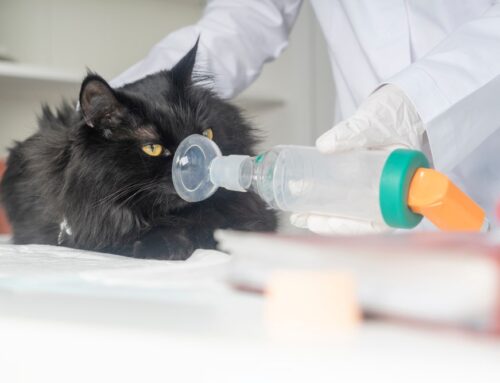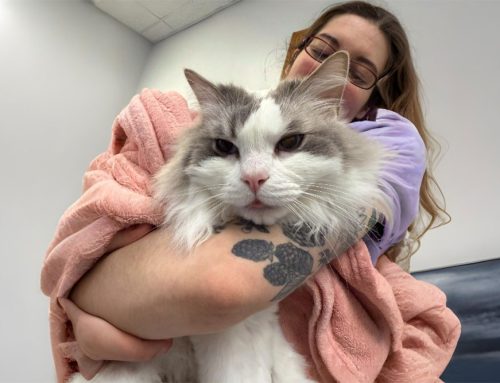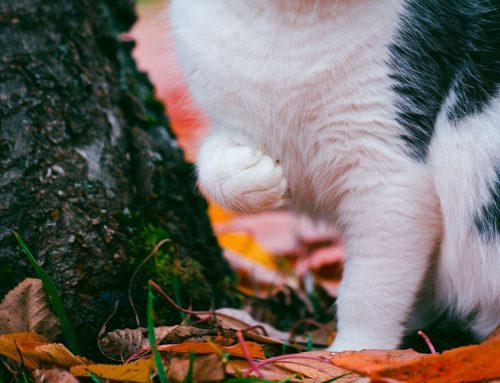Having your feline companion curled up on your lap, purring, is wonderful. Cats, known for their independent yet affectionate nature, are beloved companions that bring joy, companionship, and comfort to many homes. To help ensure your cat’s happiness, you need to understand their unique needs and provide an environment that caters to their physical, mental, and emotional well-being. Our Animal Urgent Care of Oconomowoc team offers essential tips to help keep your feline friend happy and healthy during Happy Cat Month and year-round.
Provide your cat with a stimulating environment
Cats are naturally curious, inquisitive, and playful creatures who need to be able to practice their natural behaviors. To keep your whiskered friend engaged and mentally stimulated, provide them with the following:
- Various toys, including those that mimic prey
- Scratching posts
- Cat cubes or trees
- Window perches
- Interactive toys such as a laser pointer or a feather wand
- Puzzle feeders
Feed your cat a balanced diet
A balanced, high-quality diet is crucial for your cat’s overall health and happiness. Consult your veterinarian for recommendations on the best food for your cat’s age, weight, and health condition. Avoid feeding your cat too many treats, as obesity can lead to various health problems and impact their quality of life.
Adhere to your cat’s annual wellness exams
Routine veterinary checkups can help monitor your feline companion’s health and detect any potential issues early. Ensure your cat is up-to-date on vaccinations, parasite control, and dental care. A healthy cat is happy, and regular veterinary visits play a significant role in maintaining their well-being.
Provide your cat with safe and comfortable places
Cats are particular about their surroundings and need safe and cozy spaces to retreat and relax. Provide comfortable bedding, including access to quiet areas away from household noise and activity. High perches or cat trees help cats feel secure by having a safe place from which they can observe their surroundings.
Foster social interaction with your cat
While cats are often perceived as solitary animals, many enjoy social interaction with other household cats and their human family members. Spend quality time with your whiskered pal through petting, playing, and gentle grooming. Pay attention to their body language to understand your whiskered pal’s preferences and comfort levels.
Encourage your cat to be physically active
Regular exercise is important for maintaining your furry pal’s physical health and preventing obesity. Engage your cat daily in regular play sessions that encourage movement such as chasing toys or climbing. Providing vertical space with cat trees or shelves can also promote physical activity.
Keep your cat’s litter boxes clean
Cats are fastidious animals who can be particular about their litter boxes. Keep your feline friend’s litter boxes clean by removing waste at least once daily and placing boxes in quiet, accessible locations. Ensure that enough litter boxes are available in multi-cat households to prevent territorial disputes and stress. Our team recommends two boxes per cat.
Respect your cat’s independence and need for privacy
Cats value their independence and personal space. Allow your cat time alone when they seek it, and avoid forcing interactions. Respecting your whiskered pal’s boundaries and understanding their need for solitude are crucial for their emotional well-being.
Offer your cat mental enrichment
Enrichment activities can keep your furry friend mentally stimulated and challenged to prevent boredom. Rotate toys regularly, provide cardboard boxes for exploration, and create do-it-yourself (DIY) enrichment such as hiding treats in puzzle toys or under blankets. You can train your indoor cat to walk with a harness and leash, allowing your curious kitty to explore the outdoors with you. If your cat is leash-resistant, consider providing them with a catio, a safe enclosure for outdoor exploration.
Monitor behavioral changes in your cat

Cats are adept at hiding discomfort or illness, so paying close attention to any changes in your feline friend’s behavior, appetite, and litter box habits is vital. These changes can be underlying health or behaviors. Early detection and intervention are key to keeping your cat happy and healthy.
Encouraging your whiskered pal’s well-being and contentment involves a combination of proper care, attention, and an understanding of their unique needs. Your feline friend can live a joyful and fulfilling life when you provide a stimulating environment, balanced nutrition, regular veterinary care, and plenty of love and respect. Remember, a happy cat is a content companion and a healthier one. If you have questions about your cat’s health and well-being, contact our Animal Urgent Care of Oconomowoc team.







Leave A Comment